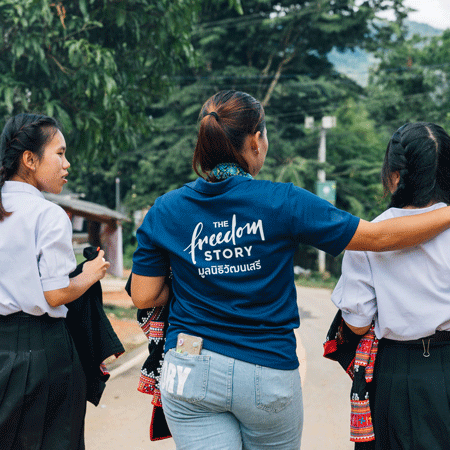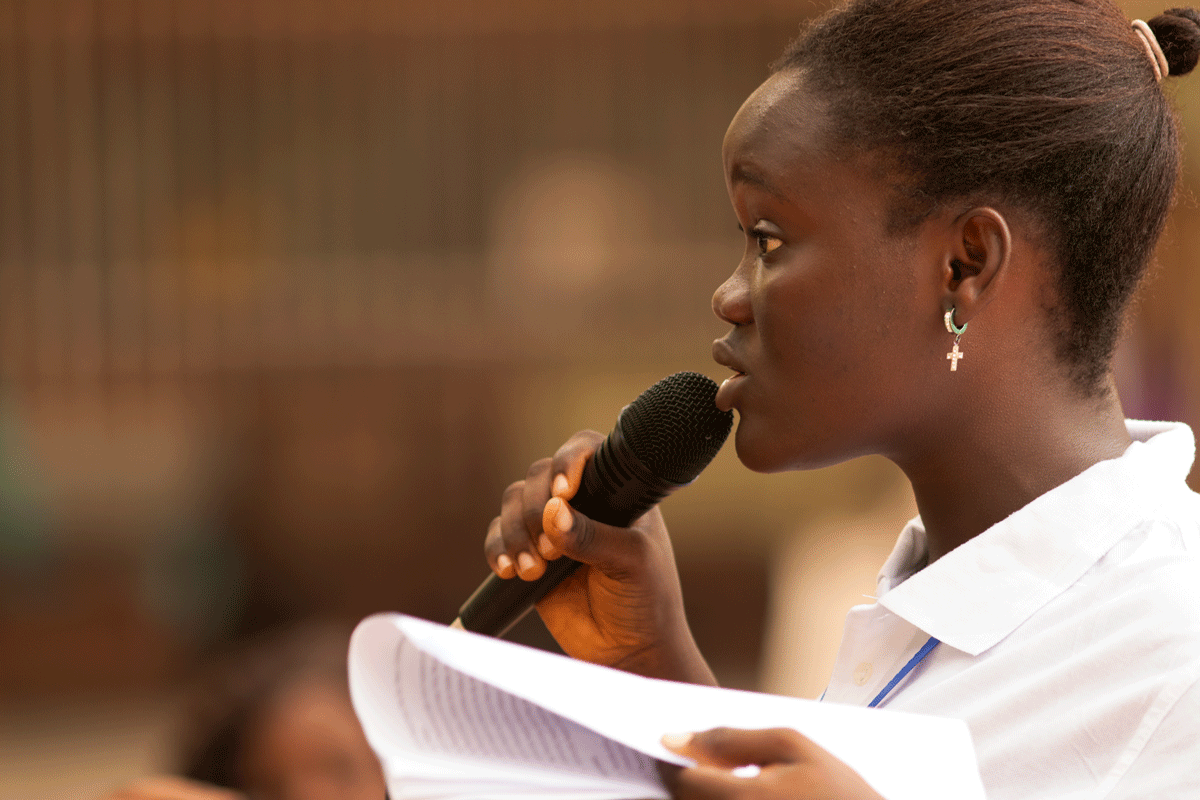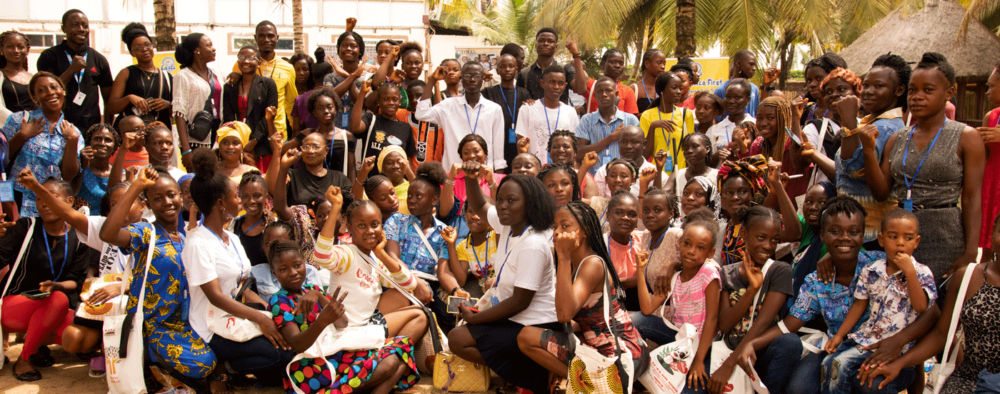
Safety and wellbeing
Gender justice, Safety and wellbeing
Editor’s note: This blog post was compiled by Michael Nabieu, a youth activist and member of the Adolescent Influencers Movement, and Amé Atsu David, Regional Co-Director for Africa at Global Fund for Children.
According to young people, there is a need to invest in educating children and young people to deconstruct gender stereotypes, which can perpetuate gender-based violence, and redefine gender-equal norms for a violence-free world.
Through the Adolescent Girls Summit, first held in 2022 and scheduled to take place again from March 26-29, 2024, Global Fund for Children and its partners are empowering us, the young minds, to serve as catalysts for change in our countries, challenge stereotypes, and redefine societal expectations. By including boys in these conversations, GFC and its partners are paving the way for a future where everyone, regardless of gender, can realize their full potential. It’s not just about girls’ rights; it’s about reshaping the narrative for a more balanced and harmonious world.

“In my journey, growing up as a boy, my view on house chores was clouded by societal expectations. I harbored a negative perception, believing these tasks were primarily meant for girls or women. However, my mindset underwent a significant transformation through my interactions with like-minded young people participating in Global Fund for Children’s partners’ programs who questioned traditional gender roles. I realized that chores shouldn’t be confined to gender stereotypes. Through our individual and group conversations and experience sharing moments, I discovered the importance of boys being equally involved in household responsibilities. As a youth activist, I’m advocating that adolescents or people of all genders should collaborate to challenge and transform societal norms, stereotypes, and biases perpetuating gender inequality. With this, I’m strongly confident that this joint effort can result in a more equitable and just society where opportunities and rights are accessible to everyone without discrimination.”
“The assumption in my community that women inherently desire to care for the family creates a false narrative. For me, cooking, often seen as a basic household skill, should be accessible to all genders, as all can excel in caregiving and management. Stereotypical jokes about men handling domestic tasks after work are disproven by real examples.”
“Some of the common stereotypes include:
A lady must not work or she will challenge her husband’s authority.
A lady must be submissive.
A lady knows how to keep her house clean.
A lady must care for her family.
A lady must have children.
A lady cannot be selfish. She must sacrifice whatever her man wants from her regardless of her wishes.
A lady should obey her in-laws.
No one asks the lady if she actually wants to do all of this; it is just expected of her. It is demanded from her.”
“In my society, entrenched traditional roles and stereotypes persist, reinforcing the belief that women shouldn’t assume leadership roles. Allowing a woman to take on the primary breadwinner role is often seen as a threat to a husband’s and father’s respect. It is also a belief in my society that boys should be given the leverage to socialize and roam about freely, whilst girls are kept under strict supervision. Because the belief is if you expose girls and give them too much freedom, they may become wayward.”
“My participation in several advocacy initiatives, campaigns, seminars, and training sessions more precisely on sensitive issues and challenges faced by children, especially girls, in the society changed my mindset about the norms of the society in regards to the rights, responsibilities, and duties of the children, women and men.”

“I have a younger brother. Each time he cries, everyone screams out and asks him, ‘Why will you do that? Are you not aware a boy is not supposed to cry?’ My sister and I look at him and say: ‘Cry all you want, express your emotions. You are human.’ Even in our various schools, if a boy is punished, he is not expected to cry. If you do, the male peers and girls will make you a subject of laughter, and say stuff like, ‘Why are you crying like a girl?’ As if women are created to cry, whilst boys are meant to withstand pain. I think we’ve been creating awareness for too long. It’s high time we start implementing the change we seek.”
“During my upbringing, I held the belief that women or females were not superior. The societal image of a woman in my perception seemed to convey weakness and lesser competence, framing them solely as supporters rather than central figures.”
“With regards to the home chores, it [is often said] that girls should do 80% of the home chores with a stand that they are future housewives for their husbands after marriage whereas boys are meant for errands and 20% of the home chores because our parents believe that we are future breadwinners. So, these are some of the norms we’ve been practicing.”

“To resolve these issues, we need to start now. Changing people’s mindsets by creating awareness is essential.”
To end sexual and gender-based violence, we the young people suggest that it is crucial to dispel stereotypes and recognize diverse abilities. Encouraging emotional expression, challenging beliefs such as “boys don’t cry,” fostering healthier attitudes, empowering girls to pursue any career, advocating for shared responsibilities, and acknowledging diverse capabilities all contribute to a more inclusive perspective on gender equality. As we share our stories, we hope to inspire and contribute to a future where stereotypes are shattered, and true equality prevails for girls and boys alike.
Header photo: Participants in the 2022 West Africa Adolescent Girls Summit. © GFC
